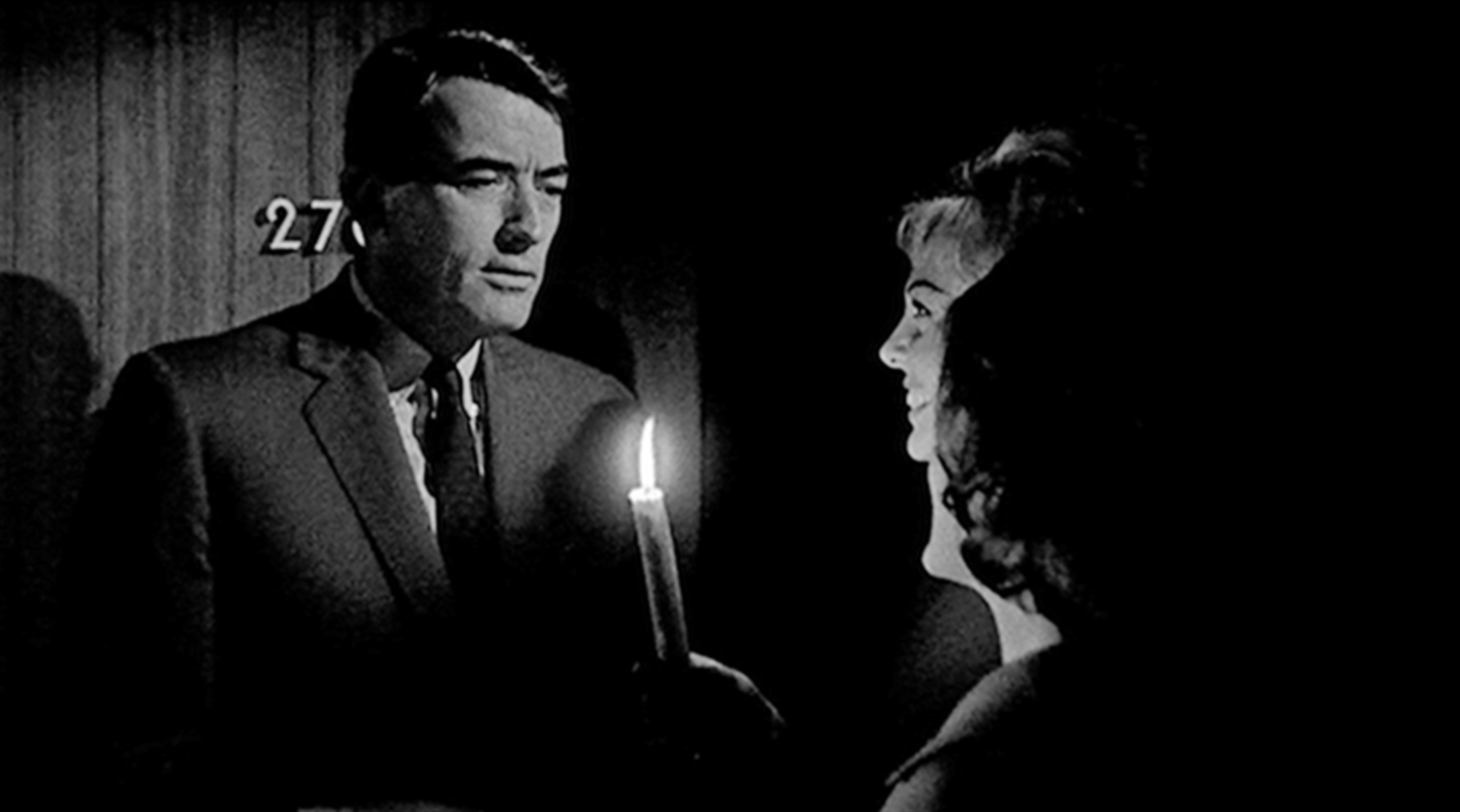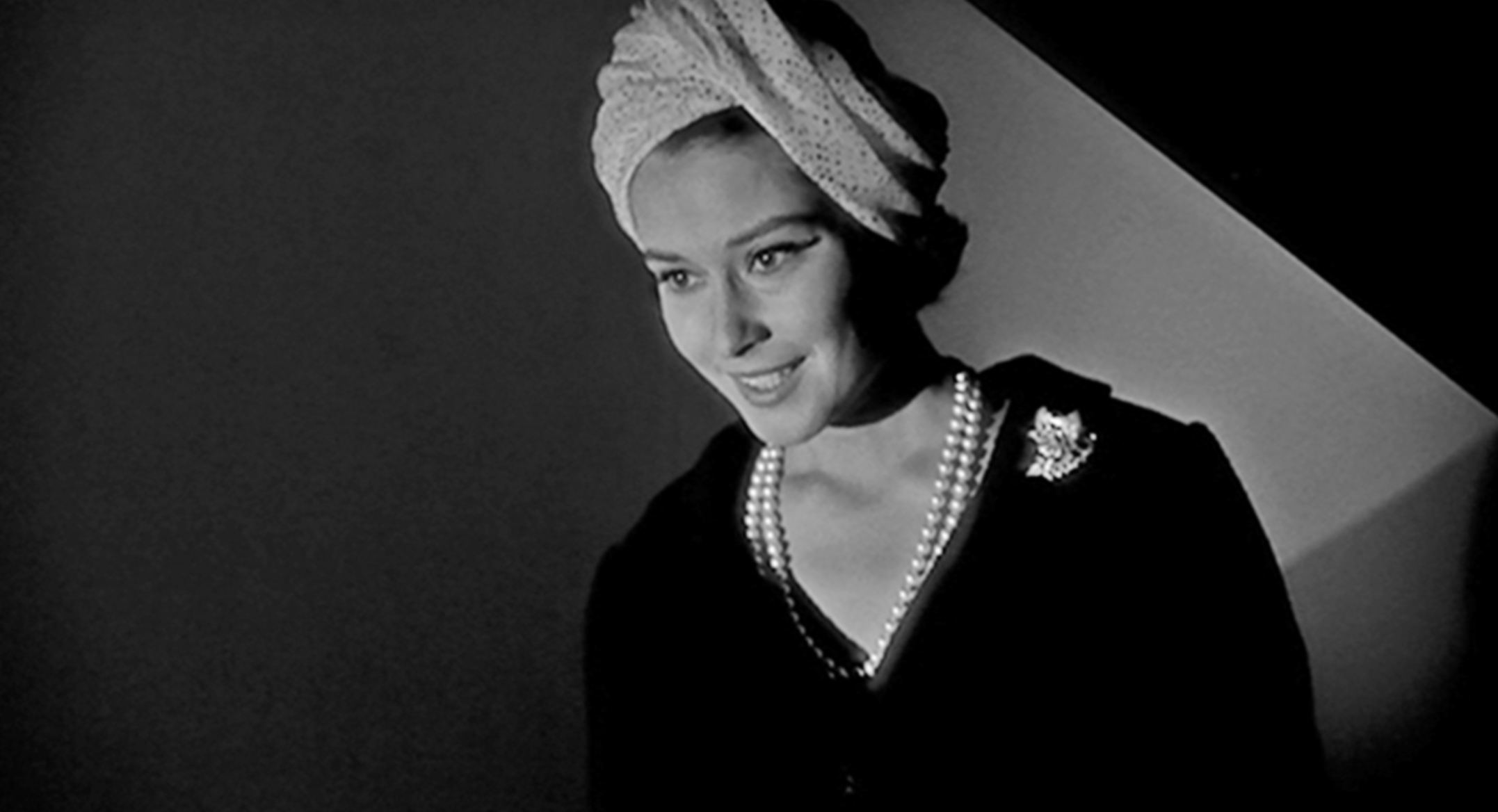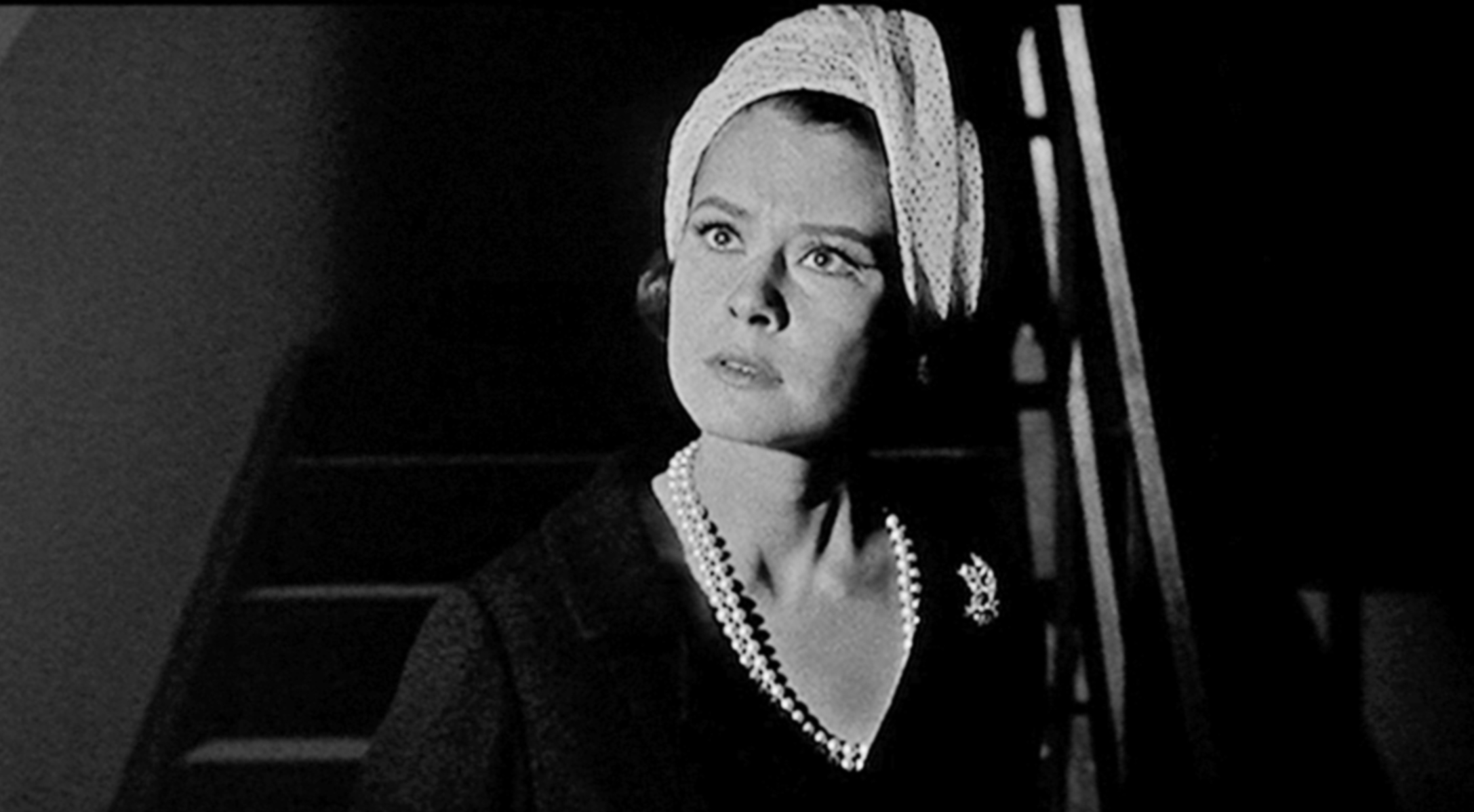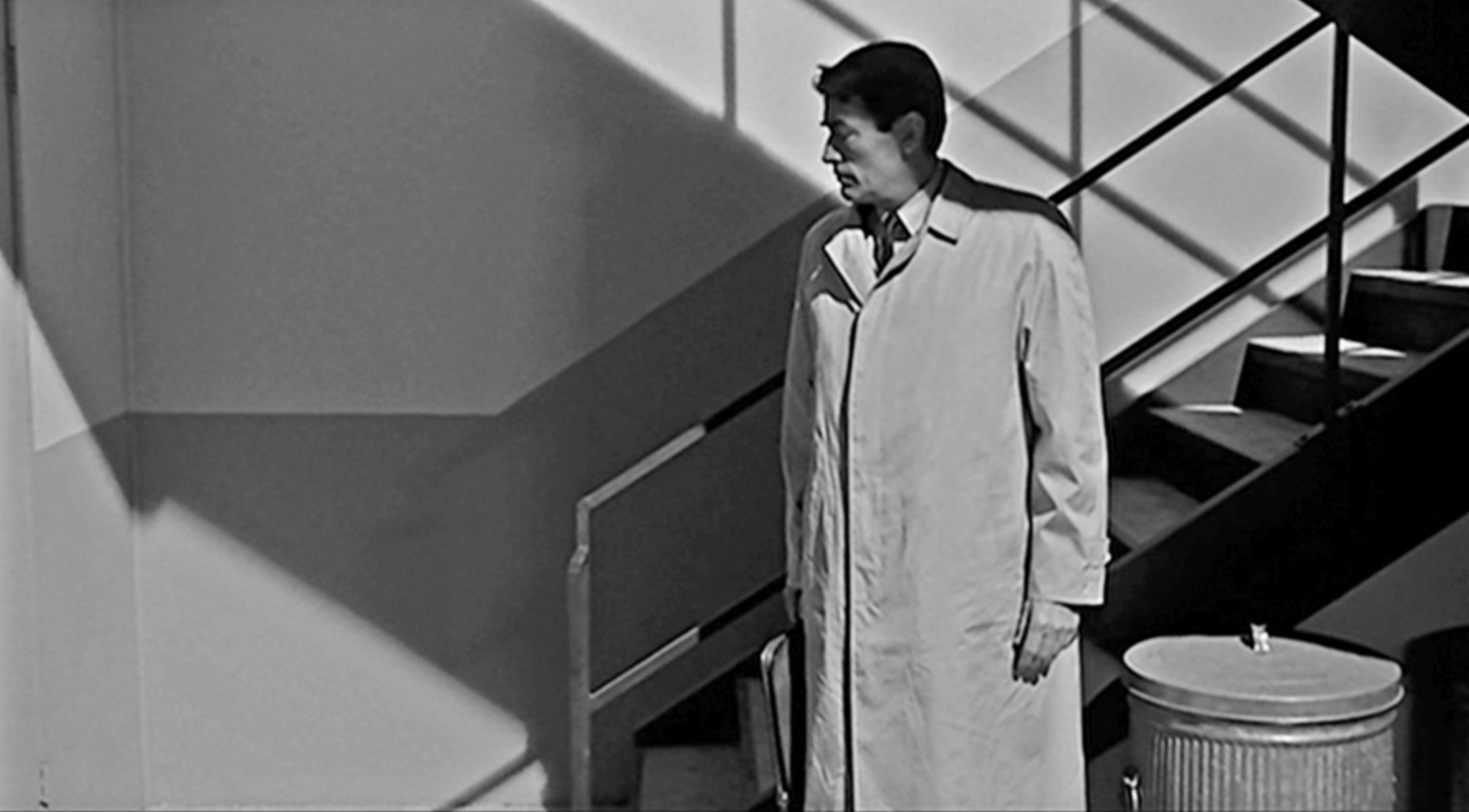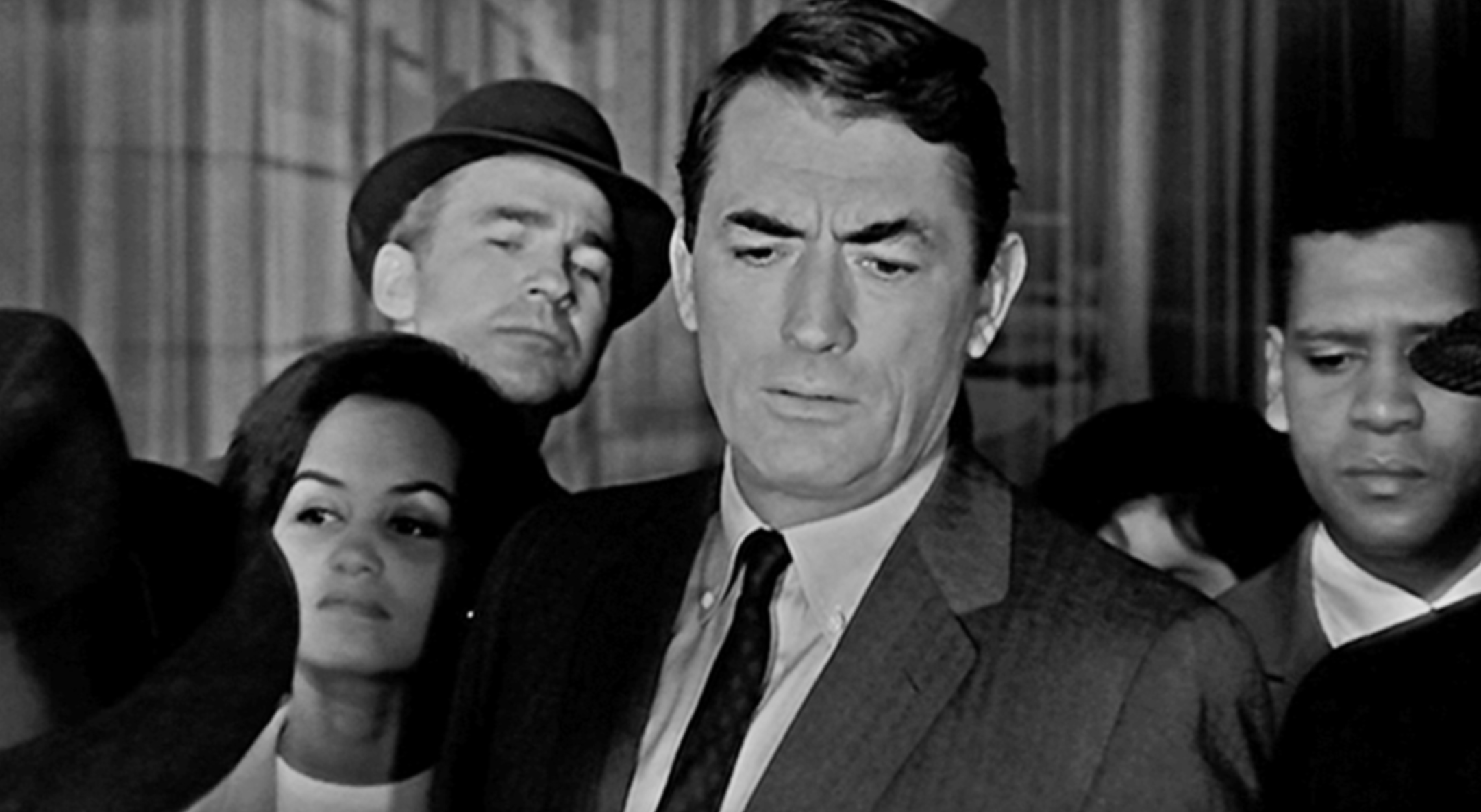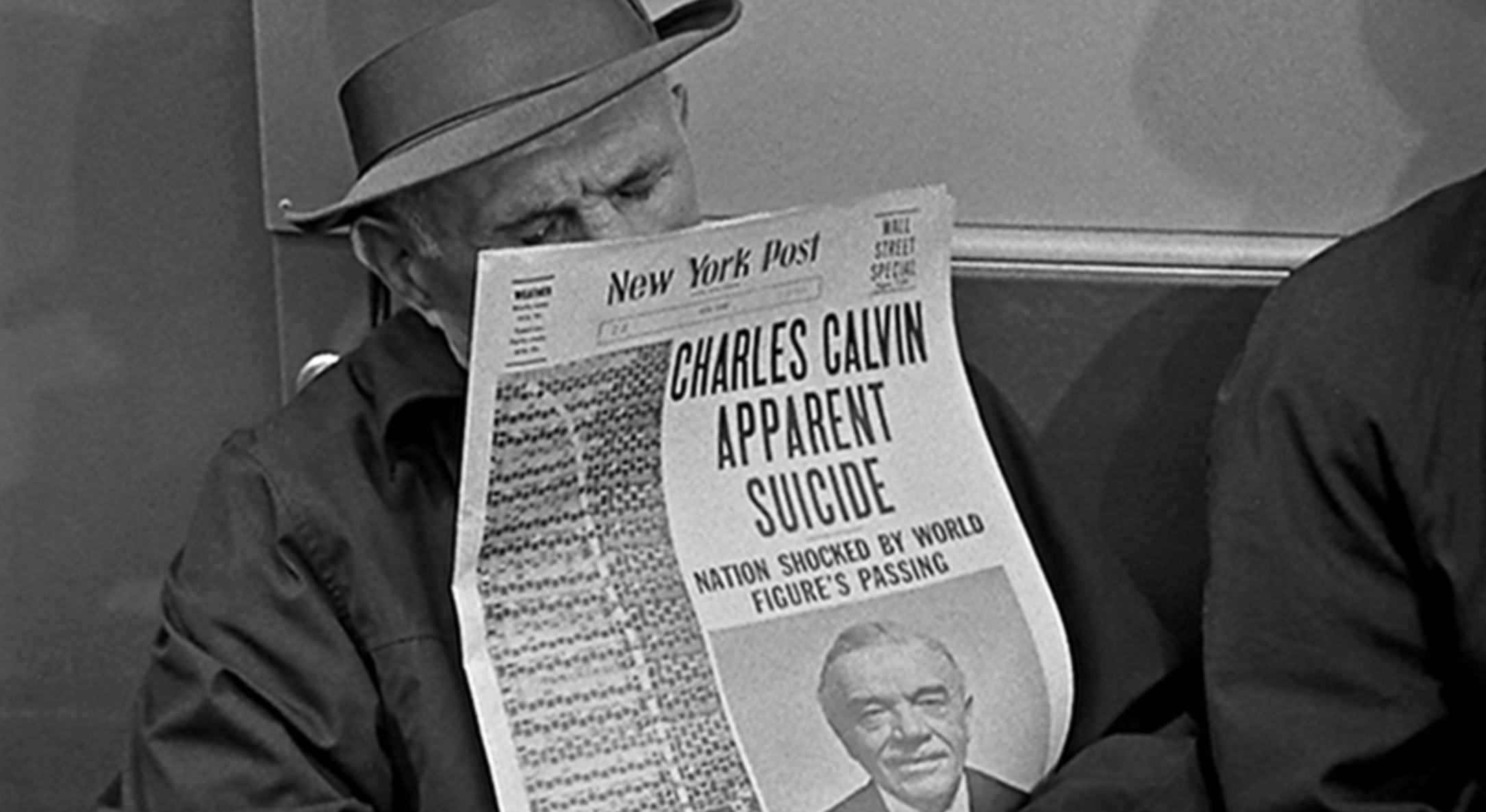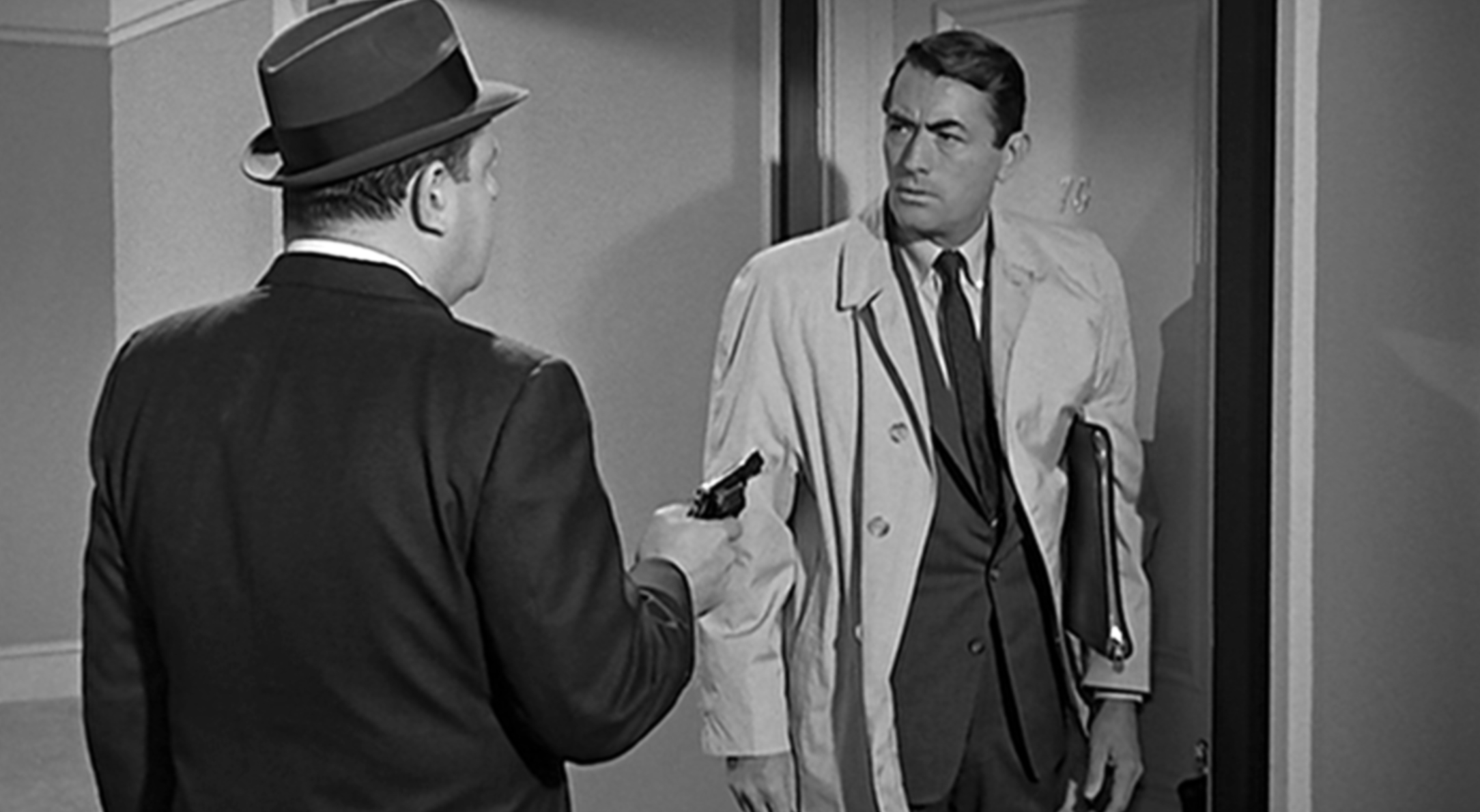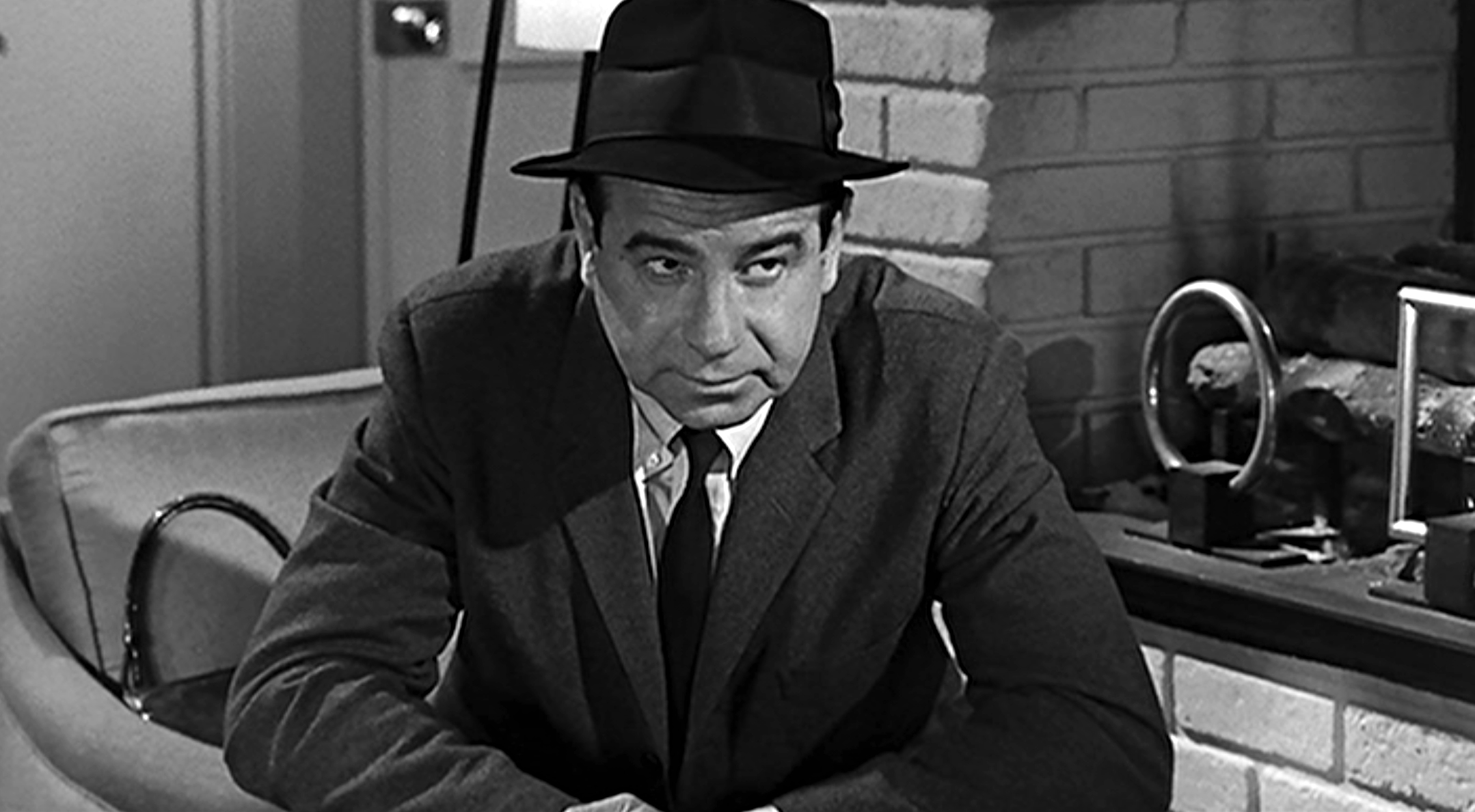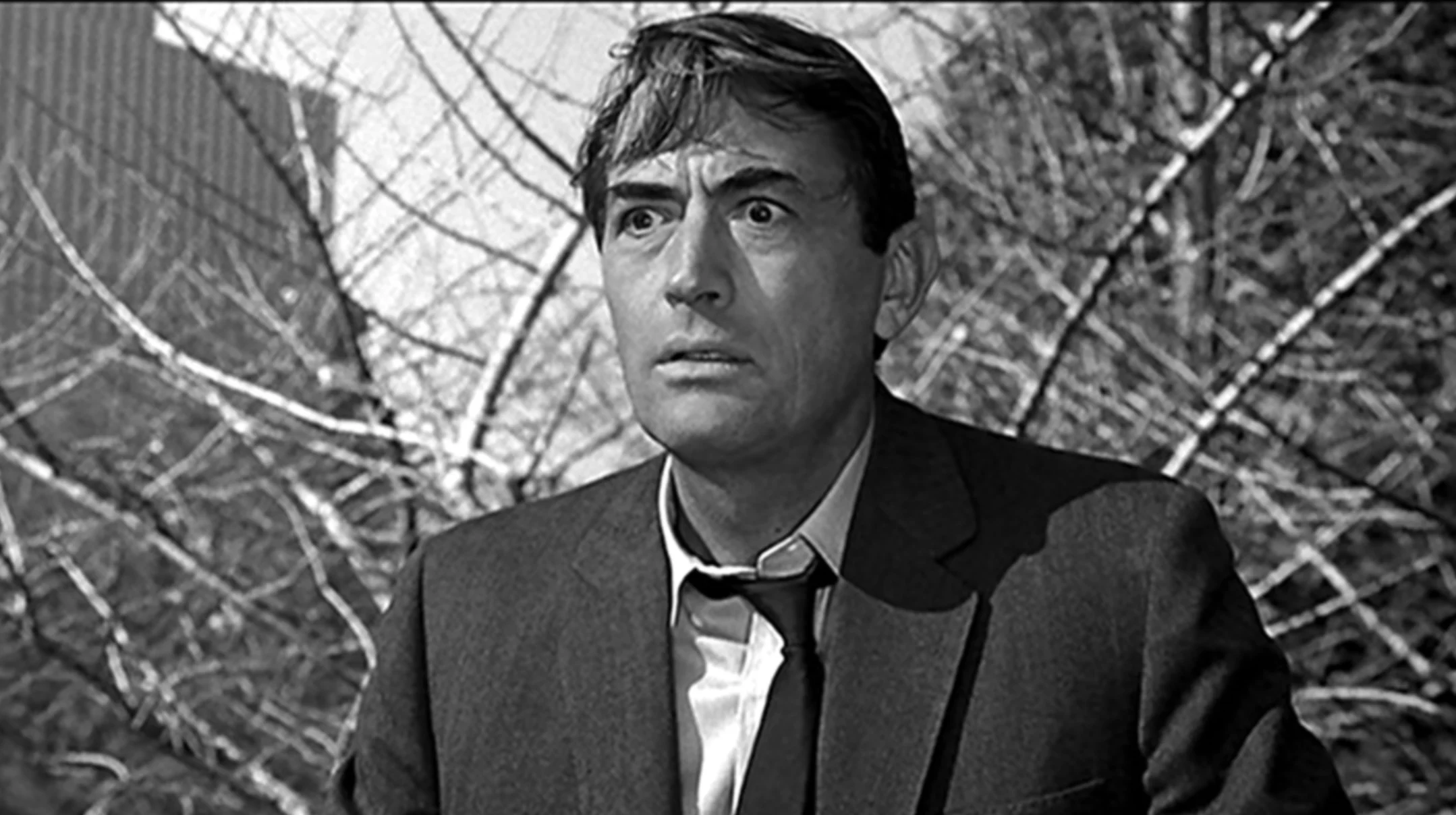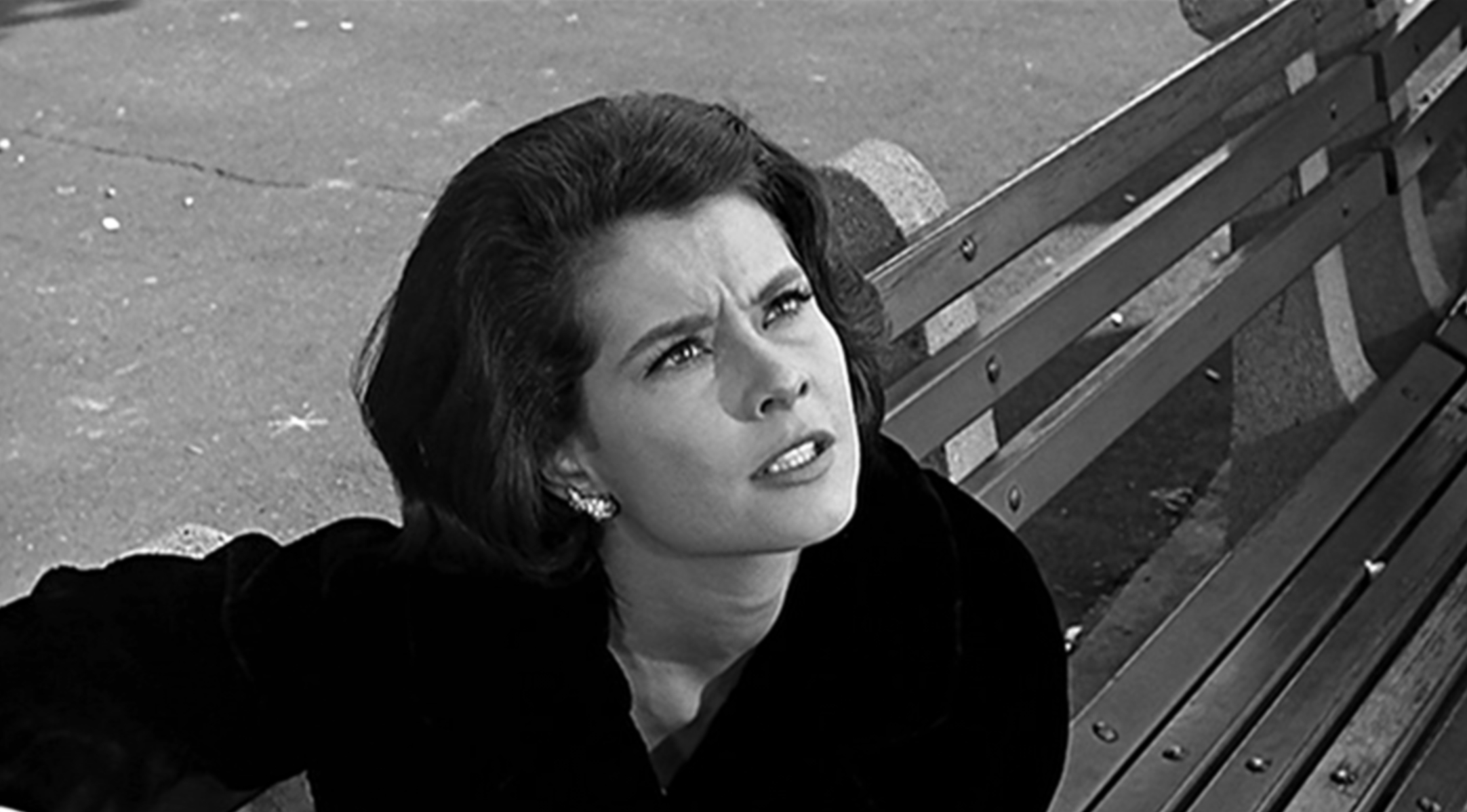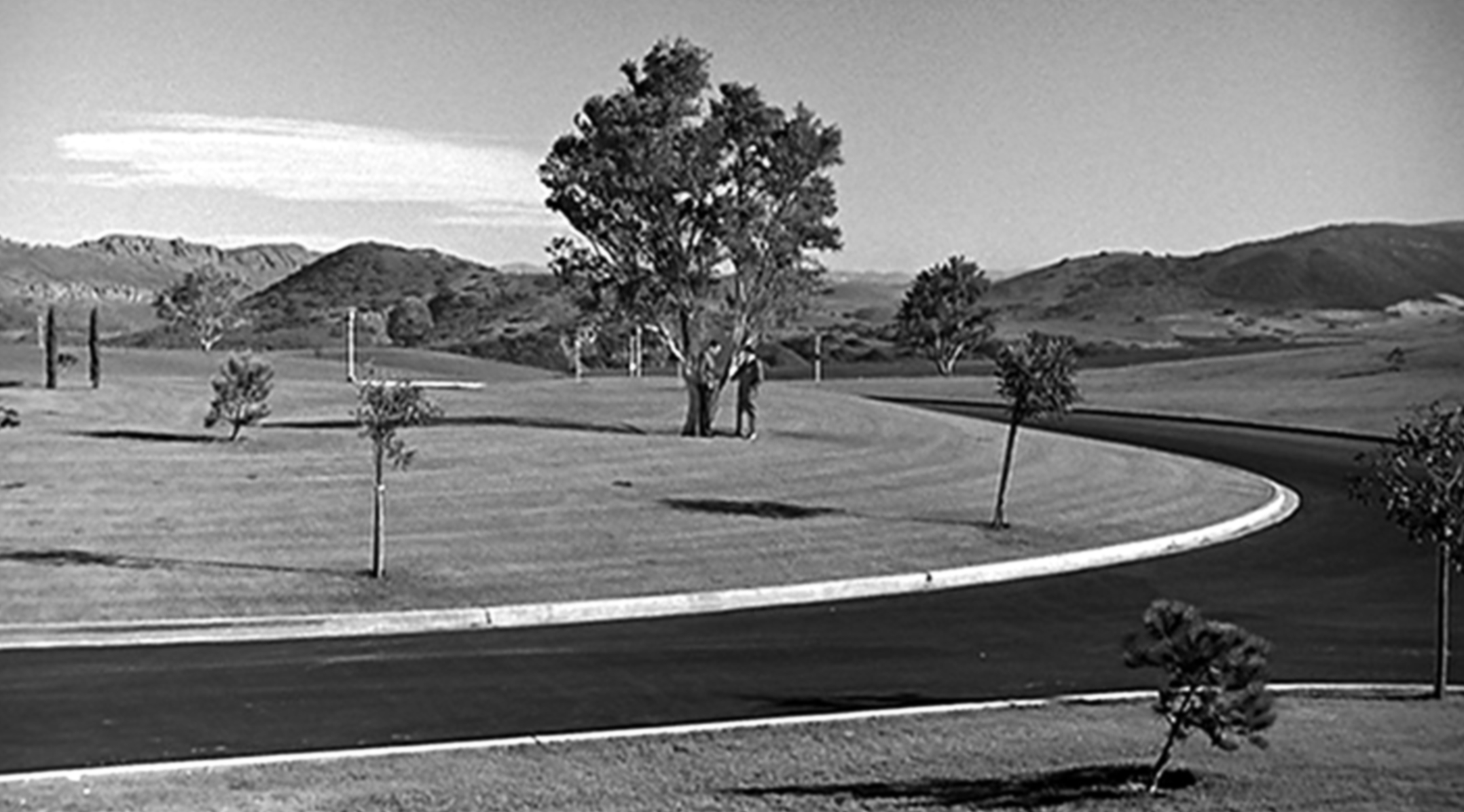Lost in a Fog
In midtown Manhattan, all the lights go out in a high rise office building. It's near quitting time anyway, so the building's workers gather their candles and flashlights and head to the nearest open office with a pint and a radio. David Stillwell (Gregory Peck) isn't really in the mood for an impromptu rumpus, he just wants to make his way out of the darkness and head home. As he's feeling his way toward the stairwell he encounters a lovely woman (Diane Baker) also making her way towards the exit, who seems to recognize his voice in the darkness. "I heard you were back!" she proclaims, and asks, "You wouldn't know why he cut off the electricty would you? I'd say it was a practical joke, if it were anyone else but The Major."
Although he wishes he did, David has no idea who this lady is and admits his ignorance. They traipse down the twenty-seven flights to the street, and in the light of the early evening traffic the woman gets her first good look at David. She screws up her face in anger, "I knew it was you! That was a stupid joke!" Upset, she runs back into the stairwell and zooms down four more flights into the basement. David runs after her, but the stairs dead-end abruptly at Sub Level 4 and suddenly there's no sign of the woman.
Confused, David retraces his path back up the street and heads towards the nearest bar. As he crosses traffic he notices a commotion in front of his building. It looks like someone's jumped from one of the high-rise windows, and passersby and paramedics are crowding around the site of the accident. But David doesn't have time to rubberneck and he doesn't really care; it's been a lousy day and he just wants to get a quick drink before heading home.
These few incidents are the seeds of madness that is the movie Mirage (1965), a brisk and funny thriller that never stops twisting around the mysteries of David's evening until his whole world has been turned upside down. The strange occurrences have just begun for David: When he reaches the bar, his usual bartender doesn't recognize him, even though he's in there every night. When David returns to his office building to search the basement again for the woman, he finds the building's staircase stops at the street level—there are no basement stairs. When he arrives home there's a man waiting for him with a gun. He insists that David leave with him for Barbados, and keeps referring to the same person that the mysterious woman mentioned, The Major. David escapes from the would-be-kidnapper's clutches but there are other people after him now; and the mysterious woman reappears and seems to know all about David and who's after him.
David doesn't know if there's a sinister plot at work or if he's just losing his mind. He realizes that he doesn't remember much about the work he was doing in that office building, or what he's been doing for the past two years. He enlists the help of a psychiatrist, who listens to David's story and his "symptoms." Although it sounds like David might have amnesia, the psychiatrist angrily proclaims, "No one can have amnesia for two years!" David then heads to Ted Caselle, a private detective played by Walter Matthau. He hires Caselle to investigate himself: Who is David Stillwell and what is he doing in New York? Do these strange occurences have anything to do with the man who fell to his death outside the office building? Why is David being followed by sinister-looking men?
Amnesia movies already have one strike against them for the inherently contrived nature of their story, but what rescues Mirage from any whiff of tedium is veteran director Edward Dmytryk, responsible for film noir classics Murder My Sweet (1944) and Crossfire (1947). Dmytryk keeps the tone of Mirage light and in the realm of a Hitchcock-esque thriller rather than delving the plot into noir themes of shadows and inner darkness. Rarely does the action stop to take a breath for any unnecessary romantic interludes or patronizing plot catch-ups. But just what kind of thriller is Mirage? Is it a spy movie? A mistaken identity? We don't know because Peck doesn't know, so we're arm in arm with him and Matthau, running down the streets of Manhattan dodging mysterious men that seem intent on killing them both.
It's so much fun watching serious everyman Gregory Peck piece together his life, his confusion bouncing off Walter Matthau's deadpan comedy and Diane Baker's sultry clues. The thrill of Mirage is in this delightful jigsaw, in staircases that don't exist and in a world where no one knows your name. When David's reality begins to take shape, it's almost a disappointment because it's been so much fun trying to fit the puzzle together.
Mirage is available on DVD

